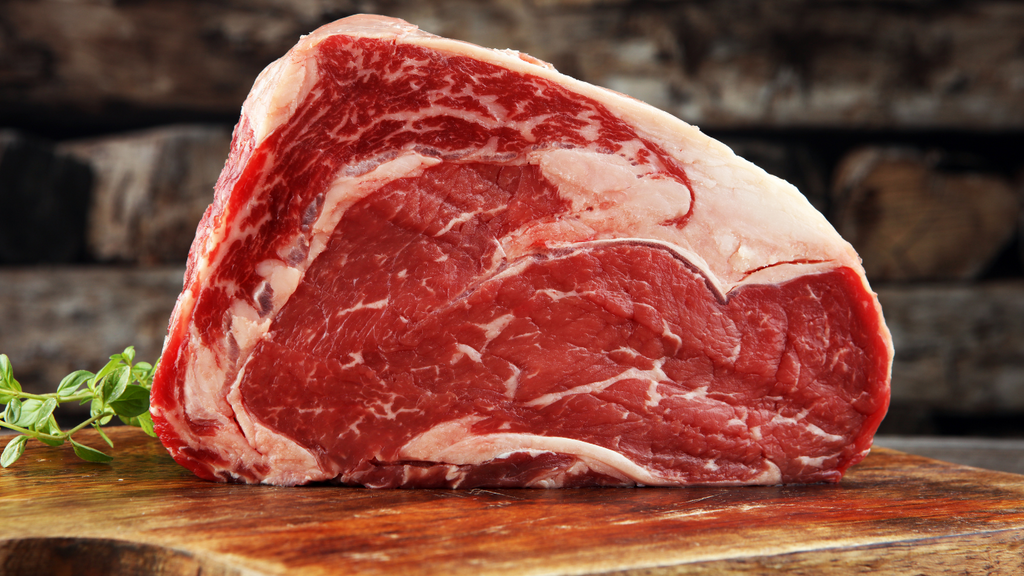There’s a global push to limit meat consumption, and it’s not just coming from fringe corners of the internet—it’s backed by major players like the World Health Organization and the World Economic Forum. These institutions talk about “sustainability” while dining on filet mignon behind closed doors. Meanwhile, red meat—a food that built civilizations—is under attack, while nutrient-void plant-based diets are held up as the answer to every global woe.
Let’s be clear: this isn’t new. History is filled with examples of societies that lost their vitality when they abandoned meat. And if we ignore that history, we’ll repeat it—tired, foggy, sick, and starving for real nourishment.
1. The Meat Divide: Then vs. Now

You get what’s happening, right? Back in ancient times, meat wasn’t just food—it was status. Warriors, citizens, and rulers ate meat. Slaves and peasants? Grains. That wasn’t a coincidence. Meat built strong bodies and sharp minds. Grains filled bellies, kept people weak, and made them docile.
Fast forward to today, and it’s the same playbook. Those pushing meat restrictions aren’t giving it up themselves—they’re just hoping you will.
2. The G20 Irony: Filet Mignon for Me, Crickets for Thee

At the 2022 G20 summit in Indonesia, world leaders dined on Wagyu beef, fish, and butter-poached lobster. At the same time, they discussed how to get the rest of us to reduce our meat and fish intake to “save the planet.”
The hypocrisy is exhausting. Why are the rule-makers always exempt from the rules? Maybe it’s because deep down, they know the truth: meat is essential. That’s why they’re still eating it.
3. Meat Surveillance: The Eric Adams Agenda

New York City Mayor Eric Adams literally thanked corporate giants like American Express for helping track and limit meat consumption. Yes, you read that right—meat surveillance is now a thing.
This isn’t about health. It’s about control. You don’t need to track spinach and tofu consumption. But meat? Meat makes you strong, independent, and harder to manipulate. That’s why they want to control it.
4. Collapse Follows the Meatless

Let’s look at history again. Every major civilization that gave up meat collapsed within a few generations. The late-stage Roman Empire replaced the meat-heavy diet of the Republic with cheap grain handouts. East Germany after WWII? Meat rationing. Pre-revolutionary France? The elites hoarded meat while the rest lived on bread and broth.
You can track societal vitality by meat access. Once it disappears, so does resilience.
5. Health Crashes When Cultures Ban Meat

Cultures that strictly forbid meat consumption often suffer severe deficiencies: vitamin B12, heme iron, zinc, taurine, creatine, carnitine—the list goes on. These are not optional nutrients. They’re essential for physical and cognitive function.
In India, where vegetarianism is culturally and religiously promoted, there are widespread issues with anemia and stunting in children. In strict vegan societies, mental health declines, fertility crashes, and immune systems weaken. These patterns repeat. Every time.
6. Plants Can’t Replace Meat—Period

There are certain nutrients your body simply cannot get from plants in the form it needs. Heme iron? Only in meat. Vitamin B12? Same. Creatine, taurine, DHA, K2 (MK-4), carnosine—all either absent or poorly absorbed from plant sources.
You can’t out-supplement a steak. And no, that lab-grown burger isn’t the answer either.
7. Meat: The Ultimate Superfood

Forget acai bowls. Meat is the most nutrient-dense food on the planet. Organ meats like liver are packed with vitamins A, B12, iron, folate, and copper. Muscle meats offer complete protein, essential fats, and minerals.
The more processed our food becomes, the sicker we get. Meat is the original multivitamin—and it doesn’t come in a bottle.
8. The Bacon Suit Guy Was Right

What’s my protection against aging, chronic disease, and metabolic collapse? It’s not kale smoothies and tofu wraps. It’s animal fat, protein, and real food. It’s meat.
Call it radical. Call it ancestral. Call it bacon-based body armor. Whatever it is—it works.
References
- Eaton, S. Boyd, Melvin Konner, and Marjorie Shostak. “Stone agers in the fast lane: chronic degenerative diseases in evolutionary perspective.” The American Journal of Medicine, vol. 84, no. 4, 1988, pp. 739–749.
- G20 Bali Leaders' Declaration, The White House, 2022, www.whitehouse.gov.
- NYC Mayor’s Office. “Mayor Adams Announces New Plan to Reduce City Food-Based Carbon Emissions.” nyc.gov, April 2023.
- Albala, Ken. Eating Right in the Renaissance. University of California Press, 2002.
- Yajnik, Chittaranjan S. “Nutritional Considerations in Vegetarian Diets.” Progress in Food & Nutrition Science, vol. 17, no. 4, 1993, pp. 235–241.
- Melina, Vesanto, et al. “Position of the Academy of Nutrition and Dietetics: Vegetarian Diets.” Journal of the Academy of Nutrition and Dietetics, vol. 116, no. 12, 2016, pp. 1970–1980.
- O’Neill, Brittany, et al. “Nutrient adequacy of meat-based, vegetarian, and vegan diets.” Nutrients, vol. 14, no. 2, 2022, p. 290.
- DiNicolantonio, James J., and Joseph Mercola. The Fat for Fuel Ketogenic Cookbook. Hay House Inc., 2017.

